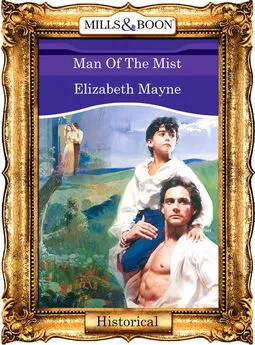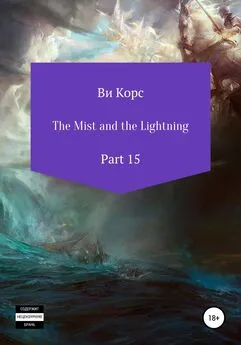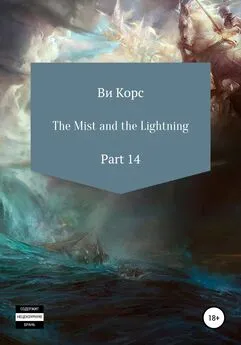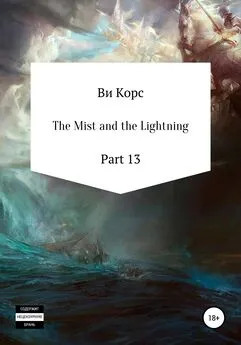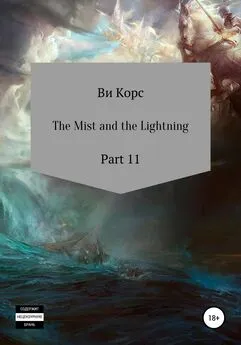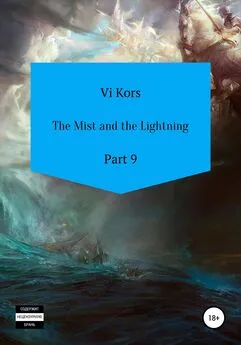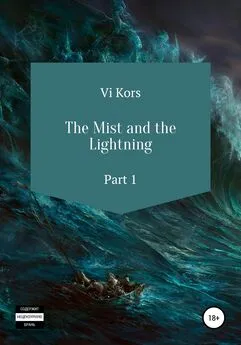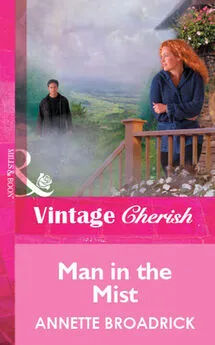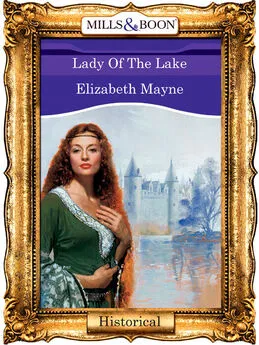Elizabeth Mayne - Man Of The Mist
- Название:Man Of The Mist
- Автор:
- Жанр:
- Издательство:неизвестно
- Год:неизвестен
- ISBN:нет данных
- Рейтинг:
- Избранное:Добавить в избранное
-
Отзывы:
-
Ваша оценка:
Elizabeth Mayne - Man Of The Mist краткое содержание
Man Of The Mist - читать онлайн бесплатно ознакомительный отрывок
Интервал:
Закладка:
Elizabeth couldn’t wait to get home and exchange her somber, very damp walking dress and pelisse for a warm gown of velvet and lace. She spent an hour in the nursery telling stories to Robbie in another effort to elicit whole sentences from her monosyllabic son. Since his nanny’s sudden death in October, Robbie had all but quit speaking entirely.
Elizabeth tucked her arm around Robbie’s wee shoulders, drawing him close. “How many beans did Jack get from the peddler, Robbie?”
“Dunno.” Robbie’s shoulders lifted under the light compression of Elizabeth’s loving arm. His thick cap of dark curls brushed against her cheek as he turned his face toward the windows overlooking the park.
“You don’t know?” Elizabeth asked, cognizant of her inner fear that there might be something wrong with her beautiful, perfect son.
It was bad enough that she was not allowed to claim him as her own, to openly act or be his mother. Her father’s acceptance and support of the child came with the stricture that appearances must be kept up.
Elizabeth’s father had guessed her incipient condition before Elizabeth, in her youthful ignorance, discerned it herself. Robbie had been born at Port-a-shee, on the Isle of Man, on March 4, 1803, and legally named an orphan and a ward of her father, under his privilege as Lord Strange, lord of the Isle of Man.
For the past four years, Elizabeth had engaged in an ongoing battle to spend as much time with her son as her father would allow. Considering the circumstances of Robbie’s birth, she was fortunate to have any contact with Robbie at all, and she knew that. Hence, she had always showered the child with loving attention every chance she got. That wasn’t enough for her. She feared her limited concern wasn’t enough for the child, either.
Ever restless, Robbie wiggled off the settee to dart across the room to his low shelf of toys and books. He pulled out book after book, discarding one for the next, until he came to a well-worn favorite, a volume of illustrated fairy tales. His cherubic face was as somber as a choirboy’s as he leafed through the pages, searching for the story of the giant and the beanstalk.
When he found the picture of Jack trading his mother’s cow for three beans, he popped back onto his sturdy feet, ran across the room and laid the open book on Elizabeth’s lap. She rumpled his hair and smiled.
“Ah, I see. You brought me the picture. How many beans is that? Do you know?”
Robbie tilted his face up to hers and sighed, deep and long. He held up four fingers, which was wrong, but he said, “Three,” which was correct.
“That’s right, three beans.” Elizabeth smiled as she tucked his first finger under the tight compression of his thumb, making his gesture match his words. “Three beans and one, two, three, four, five fingers. Very good, Robbie.”
Unconcerned with numbers, he whirled away and sat in the midst of his toy soldiers and castle blocks. In the blink of an eye, the child was engrossed in his toys and oblivious of Elizabeth’s presence.
Fascinated, as always, by everything Robbie did, Elizabeth watched him build a new wall and line a squadron of tin soldiers on its rim, then flop onto his belly to maneuver the pieces.
The door to the nursery opened, and Krissy bustled in, bringing Robbie’s supper on a tray. “Well, and himself does love the wee soldiers Colonel Graham gave him, doesn’t he? Good eve, milady. I’ve brought your supper, Master Robert. Come. Up to the table with you.”
Elizabeth stood. “Robbie, I’m going to go now. I have to speak to His Grace.”
“’Bye,” Robbie grunted, engrossed in the toys, oblivious of both Elizabeth and the servant setting up his supper on the nursery table.
Krissy cast an indulgent smile at Elizabeth that, in effect, excused the child’s bad manners. Elizabeth made her own allowances for Robbie’s not standing when she did. He was so young, a baby still in the nursery. Manners would come in time.
She could no longer put off the necessity of speaking privately with her father, and the sooner the better.
Elizabeth slipped through the door joining her and Robbie’s rooms and closed it quietly, but as she checked her appearance, she kept one ear cocked to the activity in the other room. Krissy could talk the ear off a marble statue. Robbie’s infrequent mumbled grunts made no difference to her.
Elizabeth ran a brush through her hair and vainly tried to loosen the tightness out of her chestnut curls, tugging on the cluster that draped across her shoulder to stretch it. The moment she let the end of the curl go, it corkscrewed back where it had been.
“Drat!” Elizabeth said. It did no good to brush the wayward curls, or tie them, or do anything but let those curls do what they might. Hence, she rather liked her newly cropped head of hair, adorned in the latest classical style, which was both short around her head like a cap and long and feathery from the curls left dangling at her nape and her ears. She tied a green velvet ribbon that matched her dress around her head and touched a curl here and there, satisfied with her appearance.
Elizabeth lingered at her vanity a moment longer, studying the bluish shadows under her eyes, which hadn’t faded, even though she’d spent most of the day outdoors. The intensity of her worries showed. She pinched both cheeks to heighten their color, concluding that that would have to do.
Finished, Elizabeth tiptoed down to the second-floor landing, deliberately pausing to use sound to locate each member of the crowded household.
Keyes exited from the salon, bearing the used tea service on a silver tray. The butler let in and out the happy noise of the aunts, the dowager and Amalia over their rounds of piquet.
Across the foyer, the click of ivory balls accompanied a scolding from Elizabeth’s brother James, Lord Glenlyon, to their uncle, Thomas Graham. Tullie was spending the evening in bed, still recovering from the effects of his impromptu surgery the night before. God willing, every soul in the house would remain exactly where they were for the next hour, Elizabeth prayed.
She circled the newel post at the foot of the staircase and crept down the long, carpeted hall dotted with statuary and hothouse greenery until she came to the closed door of her father’s study.
Taking a deep breath, Elizabeth dashed the perspiration from her upper lip. There was nothing to be gained from putting off what she had to do. Her soft tap on the closed door just barely qualified as a knock.
Elizabeth had the door open and her head and shoulders well inside the inner sanctum before her knock penetrated as far as the duke of Atholl’s desk. “Are you free, Papa? Could I have a word with you?”
John Murray took the time to remove a pince-nez from his nose before lifting his baleful gaze to his daughter. “Ah, Elizabeth, I’ve been expecting you. Come in, my dear. Do shut that door. Those drafts up that hall are a misery.”
Elizabeth stepped across the threshold, grateful that the first and worst hurdle was over — finding her father alone and with time to spare was nearly impossible. She closed the door and took a moment to quell the fluttering of her heart by looking around the study with feigned interest.
Elizabeth was not particularly fond of this study. Though it was her father’s room, she had always associated it with her mother. It was to this room that she and Amaha had trustingly come, hand in hand, to be told the sad news of their mother’s death sixteen years before. So she had a natural repugnance for this room — though never for the man who occupied it.
Which might have seemed exceedingly odd, because where the rest of the town house might be chilly, the study somehow retained a cozy warmth. Likewise, where the aunts, the dowager and the eight-years-older Amalia might find fault with Elizabeth, her father rarely did.
She wound her way through the maze of sturdy, well-used furniture, chairs and tables that made no pretense to art or style. A cheery fire crackled in the hearth and cast eerie light up to the trophy heads and antler racks. It was a man’s room in all ways, tainted by uisge beatha, port wine, and tobacco smoke, dark and somber in color, with heavy furnishings that befitted large-boned, heavyset men like her father.
Elizabeth settled in the corner of the wide couch before the fire. “Why is it always warmest in here, Papa?”
John Murray buffed the lenses of his glasses, then tucked them into a coat pocket. “Oh, I would account that to sharing the same chimney stack with the kitchens, I suppose. Didn’t plan it that way. But I daresay my father quite enjoyed the added warmth in his later days. So shall I.”
“Are you tottering into your dotage?” Elizabeth asked, with a dimpling smile.
“Are you being cheeky, puss?” the duke asked. He poured them both a glass of sherry and handed one to Elizabeth. “What shall we toast?”
Elizabeth took the flute in hand. The corners of her mouth twitched. Her higher principles advised her to hand the glass back and firmly refuse. But to do so would insult her father. Elizabeth could not make such a display. “Well...” she murmured, thinking of her own purposes. “We could ask for a quick and decisive Parliament. All the business of making Britain run smoothly, done in three weeks at the most. Do you think that would be appropriate?”
“Indubitably,” the Duke agreed. “Here’s to good business, wise leadership and common sense!” He touched the rim of his crystal to Elizabeth’s, and tasted the fine wine. The formalities done, he settled on the other end of the couch and gave the flickering flames in the hearth his attention. “You’ve something on your mind, Elizabeth.”
“Yes, Papa, I do.” Elizabeth set the full glass on the table at her side. She dropped her hands into her lap and entwined her fingers together to keep them still. “Let’s jump straight to the point, shall we? There’s no point in my being here in London for the little season. I want to go home, tomorrow at the very latest.”
She waited until all the words were out before turning her head to gauge her father’s expression. His large head nodded, dipping as he brought his glass to his lips and sipped the sherry. The lamps behind them on his desk made a wealth of white hair glimmer all around his head. The starched points of his collar crackled where they flared up against his smoothly shaved cheeks.
“What? You just arrived here a few days ago, and already you are bored with your friends?”
“My friends, no, Papa. You know very well what I find singularly unappealing. We’ve discussed this several times, and I can’t make my wishes any plainer. I am not in the market for a husband. I don’t need one. I won’t have one, and I certainly won’t look for one, nor display myself on the marriage market here in this filthy city.”
“Oh? Can’t say I’m surprised to hear that speech again. Elizabeth, you ought to think of something more original.”
“Papa!” Elizabeth exclaimed. “It isn’t fair to bait me. You know perfectly well what I mean. London is disgusting and dirty. I hate it here. I always have hated coming to London. You should allow me my independence. I do reach my majority in April.”
“Hmmm...I’m well aware of your age, Elizabeth,” Lord Atholl mused, concerned over his youngest daughter’s stated intention of avoiding marriage — no matter the cost. “Amalia hinted this afternoon that you’d have all your reasons to return to Dunkeld in place before you sought an audience with me. Planned a little fait accompli, have you? What you’ve offered doesn’t sound either urgent or convincing, though.”
Читать дальшеИнтервал:
Закладка:
